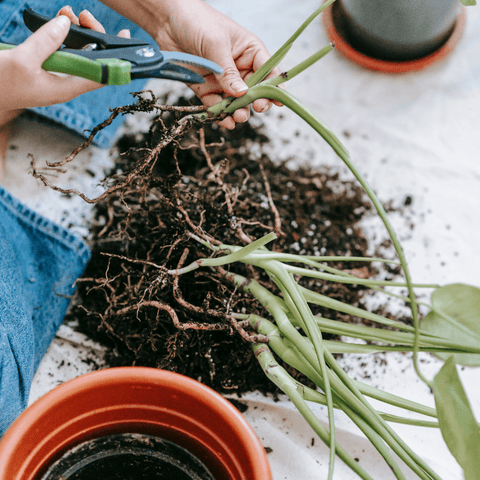June is recognized worldwide as Men's Mental Health Awareness Month - a time dedicated to shedding light on men's unique mental health challenges. Often overlooked in discussions about men's wellness, mental health plays a critical role in overall health and well-being. The stigma associated with men expressing their emotional struggles is gradually being dismantled, but there is still a long way to go. This month offers an opportunity to focus on strategies to improve men's mental health and reduce stigma. One simple yet surprisingly effective strategy involves integrating houseplants into daily life.
The Importance of Men's Mental Health
Mental health issues do not discriminate; they affect people of all genders, ages, and walks of life. However, societal expectations and traditional gender norms often deter men from seeking help for their mental health struggles. For example, men are frequently encouraged to be strong, unemotional, and self-reliant, which can discourage them from discussing their feelings or admitting they need support. This can exacerbate feelings of isolation, depression, and anxiety.
According to the World Health Organization, the global suicide rate is significantly higher in men than women. This alarming statistic underscores the urgency of addressing men's mental health openly and honestly. Open dialogues, awareness campaigns, and accessible resources can go a long way in reducing the stigma and helping men to seek the help they need.
The Power of Houseplants for Mental Health
While therapy, medication, and support groups are often primary strategies for addressing mental health concerns, a growing body of evidence suggests that nature, specifically houseplants, can also play a therapeutic role. Caring for a plant can offer numerous mental health benefits, particularly for men dealing with stress, anxiety, or depression. Here's how:
- Cultivating Mindfulness: Tending to a plant requires attention to detail, patience, and care. This process can be a form of mindfulness practice, helping individuals stay present and focused. It can provide a respite from stress and anxiety by shifting focus to the task at hand: nurturing life.
- Promoting Responsibility and Routine: Having a plant to care for can instill a sense of responsibility and provide a comforting routine. This can be particularly beneficial for individuals struggling with depression or feelings of purposelessness.
- Improving Air Quality: Plants naturally enhance indoor air quality by absorbing toxins and producing oxygen. This cleaner air can improve concentration, reduce stress levels, and improve overall health.
- Connection to Nature: Being around plants can help create a sense of connection to the natural world, which can be calming and restorative. Research has shown that exposure to nature, even indoors, can significantly benefit mental health.
Conclusion
As Men's Mental Health Awareness Month, June is a time to raise awareness, reduce stigma, and explore new strategies to support men's mental health. Incorporating houseplants into daily life might seem small, but it can make a significant difference. As we continue to push for more open conversations about mental health, let's remember that every effort counts, from seeking professional help to nurturing a little green life in our homes.





Comments (0)
There are no comments for this article. Be the first one to leave a message!